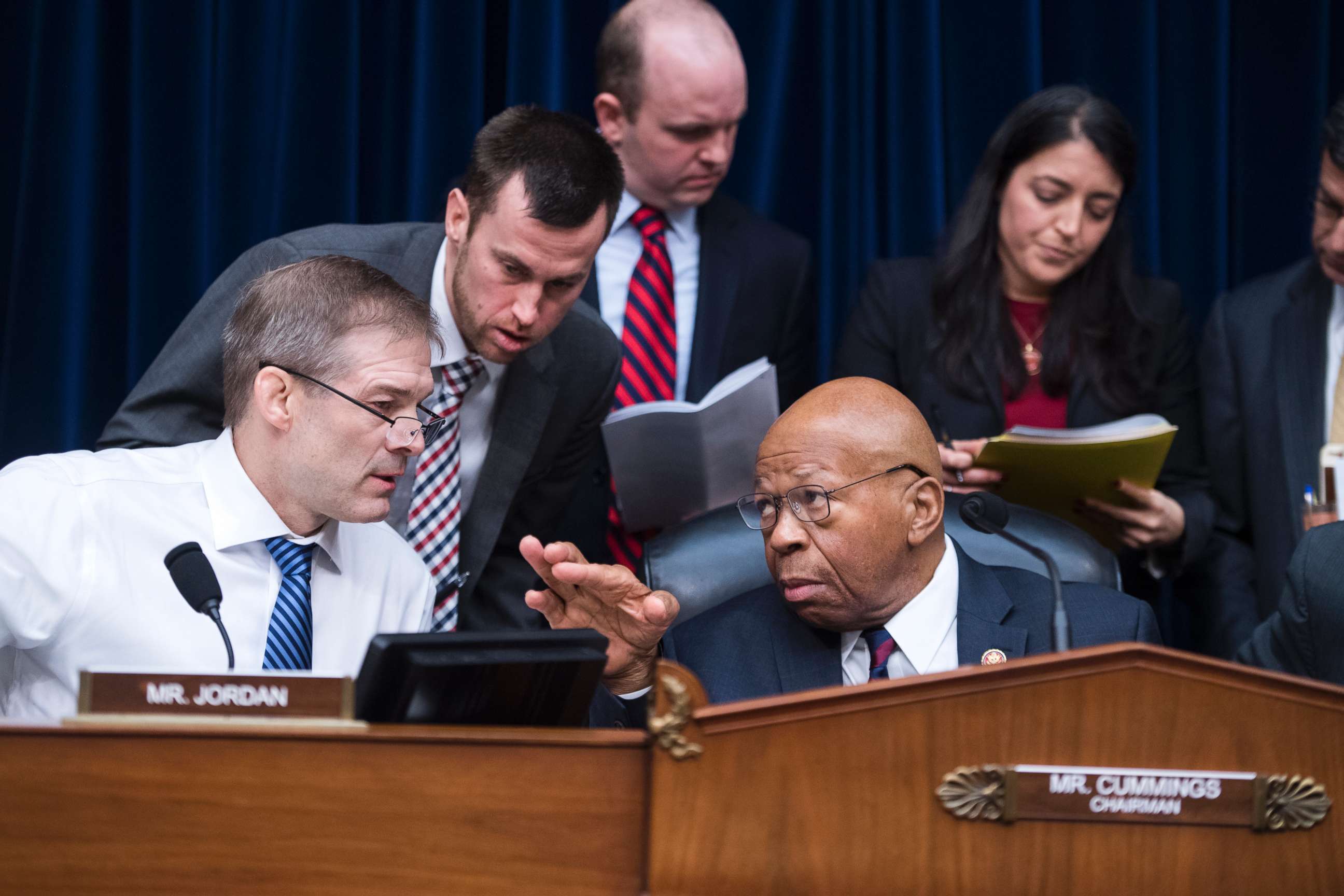Senior lawmakers from both parties target rising drug prices in hearings
President Trump said in 2017 that drug companies are “getting away with murder."
A bipartisan push from both sides of Capitol Hill kicked off Tuesday, examining the role pharmaceutical companies are playing in rising prescription drug prices.
It's an effort that also has traction with President Donald Trump and thereby has the pharmaceutical industry on edge.
Both the Senate Finance Committee and the House Oversight and Government Reform Committee held hearings on the topic Tuesday.
It's a a key priority for House Oversight and Government Reform Committee Chairman Elijah Cummings, D-Md., as he continues a sweeping investigation into the industry. Earlier this month, Cummings sent letters to 12 drug companies asking for information and communications regarding “price increases, investments in research and development, and corporate strategies to preserve market share and pricing power.”
Tuesday, the House Oversight Committee heard gut-wrenching testimony from Antroinette Worsham, the mother of two Type 1 diabetics who struggles to afford insulin because of skyrocketing drug prices.
Worsham lost her oldest daughter when she began rationing the medication, which cost $1,000 over three months.
“High drug prices are forcing patients to be non-compliant,” Worsham said. “I am crying out and asking for you to review the pharmaceutical drug gouging and make healthcare affordable for all.”

An AARP analysis found that in 2017 the average price increase was 8.4 percent -- four times the rate of inflation.
“Current prescription drug price trends are simply not sustainable,” said Dr. Catherine Alicia Georges, National Volunteer President for AARP. “Drug companies are working very hard to try to shift the blame to others in the health care system leaving them free to set incredibly high prices and increase them with little restraint.”
During the hearing Rep. Mark Meadows, R-N.C., told Cummings that Trump wanted him to relay that he’s serious about working in a bipartisan way to lower prescription drug prices. Cummings told Meadows to convey to the president that he’s “willing, ready and able to work with him to get it done.”
The administration has taken steps to crack down this very issue. Trump said during a 2017 cabinet meeting that drug companies are “getting away with murder” and pledged to lower drug prices. But that’s a tall order without draconian measures that Republicans would almost certainly oppose, like price controls. And so far, the industry’s lobbying operation has balked at any regulation attempts by the administration, including a simple requirement that drug makers disclose prices in television advertisements.
Last fall, Trump proposed what many Americans would probably view as a small first step.
The government, Trump said, planned to limit what it pays for certain drugs for Medicare recipients. The measure wouldn’t apply to the general public, only people who obtain certain types of drugs via Medicare. The drugs would have to be administered by a physician to be affected. The drug industry balked and said the administration was discouraging innovation. Drug makers say the high price of drugs is often due to the years of research needed to develop them.
Now that Democrats are in control of the House, they could fundamentally change the nation’s political approach to healthcare, making it much more likely that additional states would move to expand Medicaid coverage for low-income Americans and push back on efforts by the administration to relax regulatory standards.
Trump's Health and Human Services Secretary, Alex Azar, is a former executive at pharmaceutical giant Eli Lilly and Co., which faced criticism during his tenure for raising prices for its insulin products. Ahead of Tuesday’s hearing Azar reiterated the administration’s commitment to work in a bipartisan way to achieve the overall goal of lowering prices.
“All options are on the table to fix this system, as long as they respect drug safety and keep patients at the center,” Azar said in a statement Tuesday. “President Trump is willing to work with Republicans and Democrats to achieve lower prices. He will continue taking action until we have a truly competitive market for prescription drugs -- one in which prices will finally go down, not up.”